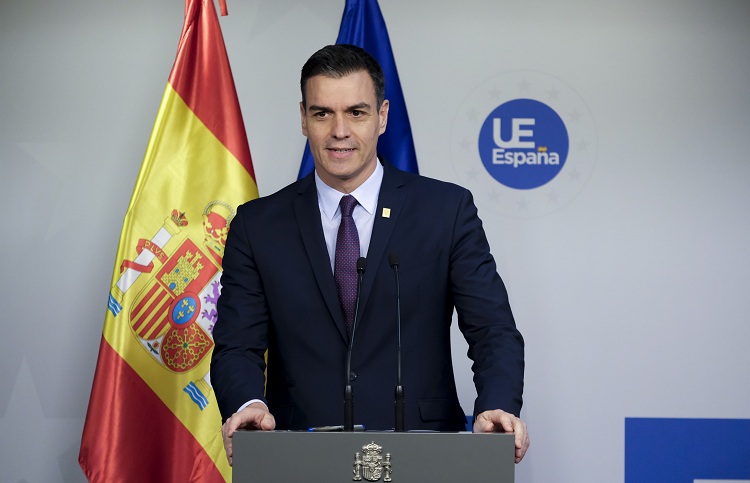Eduardo González
The President of the Spanish Government, Pedro Sánchez, will take advantage of his participation in the European Council today to present to the rest of European leaders his Government’s proposal for the creation of a new European energy framework to prevent price decontrol.
Sánchez’s day in Brussels will begin this morning with a working breakfast with the President of the European Council, Charles Michel, and will continue with a meeting with the President of the European Commission, Ursula von der Leyen. Both meetings, in which a review of the topics scheduled for the Council will be made, will be the only bilateral meetings of Sánchez in the Community capital, according to Moncloa sources.
The Council meeting will begin this afternoon and conclude on Friday, with an agenda that will include the situation of COVID-19, digital transformation, migration, European trade policy and external relations. However, and as far as Spain is concerned, the lion’s share will be the session on energy prices, which will be dealt with this very afternoon and in which EU leaders will study the measures that can be adopted at national and European level to deal with the repercussions of the price increases (which have been, in the last year, 200% in the wholesale electricity market and 9% in the retail market).
According to the aforementioned Moncloa sources, this point has been included in the agenda at the initiative of the Government of Pedro Sánchez, whose objective will be to ask the rest of the European leaders to adopt structural measures, and not merely palliative measures, to reform the energy market.
The starting point will be the proposal submitted last September by the Vice-Presidents and Ministers of Economic Affairs and Ecological Transition, respectively, Nadia Calviño and Teresa Ribera, to the European Commission to centralize the purchase of natural gas – similar to the unified European scheme for the purchase of COVID-19 vaccines – in order to contain electricity prices and to try to “reduce dependence” on this fuel in the short and medium term. Gas prices are among the main reasons for the rise in electricity prices on the wholesale market in recent months. The proposal also urges Brussels to “increase the bargaining power” of the European Union to obtain more advantageous prices, to have more “strategic reserves” in order to avoid “market fluctuations”, to address the problem of speculation in the CO2 market and to carry out a thorough reform of the European electricity market.
The Brussels proposal
Following this Spanish proposal, the Commission published a communication in mid-October in which some of the measures proposed by Spain -such as joint gas purchases- were put on hold for the medium term and asked the Member States to give “priority” to actions already provided for in current European legislation that can have an “immediate” impact. In the opinion of Brussels, the current scenario is merely temporary and the main cause is gas prices, which “will remain high during the winter months and will fall in the spring, when the situation is expected to stabilize”.
In any case, the Commission assures that it “will explore the possible benefits of joint purchases” of gas with the aim of “creating strategic reserves”, in line with the Spanish proposal, but warns that these operations would be “voluntary” and would be in line with the Community competition rules. The Commission has called an Extraordinary Council of Energy Ministers for next October 26, in which gas and electricity prices will be addressed. Teresa Ribera subsequently stated that the Commission’s proposals are “manifestly incongruent” because “they do not address the exceptional nature of the situation we are in, with exceptional measures commensurate with the challenge ahead of us”.
For this reason, Pedro Sánchez’s intention is to “forcefully” warn the other European leaders that the Commission’s proposal is “insufficient” and that the problem of energy prices is “serious and urgent” because it could jeopardize the very economic recovery undertaken by the EU after the crisis generated by the pandemic. In this regard, the aforementioned sources assume that the debate on this issue will be intense because some countries (especially those in the north) believe that the rise in prices is temporary and temporary and will begin to fall in winter, so that everything will be solved with merely palliative measures to help alleviate the most vulnerable classes. Other countries have even begun to take advantage of this crisis to promote nuclear energy.
Spain will have, in principle, the support of southern countries such as Portugal, Italy and Greece, and even France, whose government defends the revision of the current functioning of the electricity market. In any case, the Spanish proposal includes several measures, each receiving different levels of support. For example, those related to speculation in the CO2 market have the most support, while the one related to the common purchase of gas is more conflictive. The Commission, for the time being, is in favor of considering this possibility.







